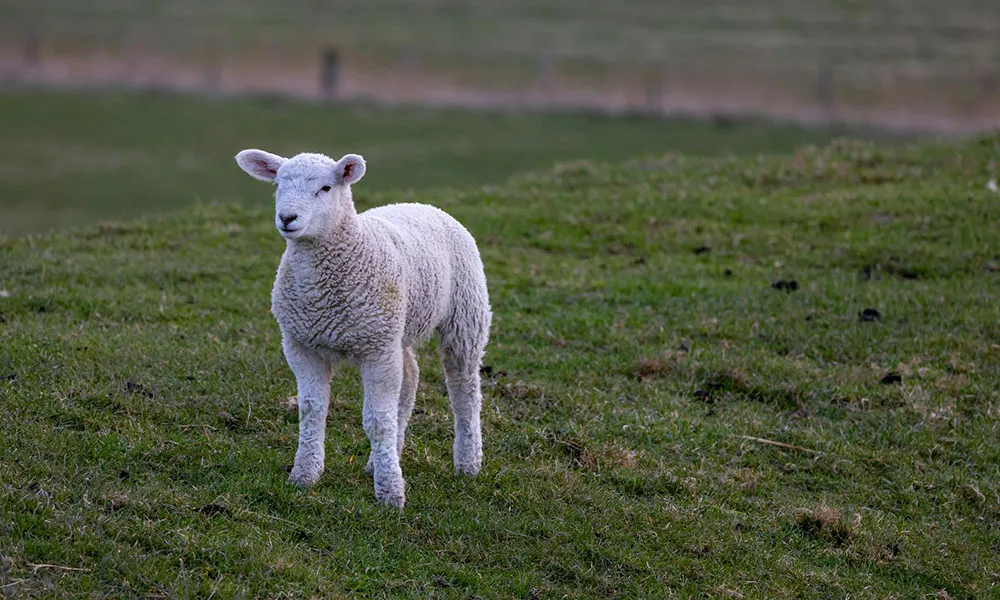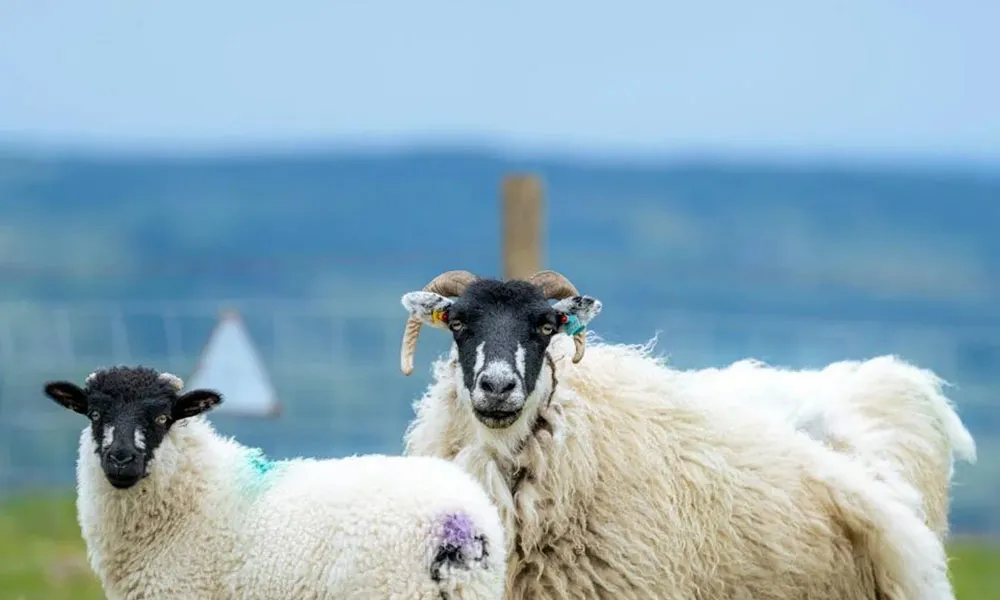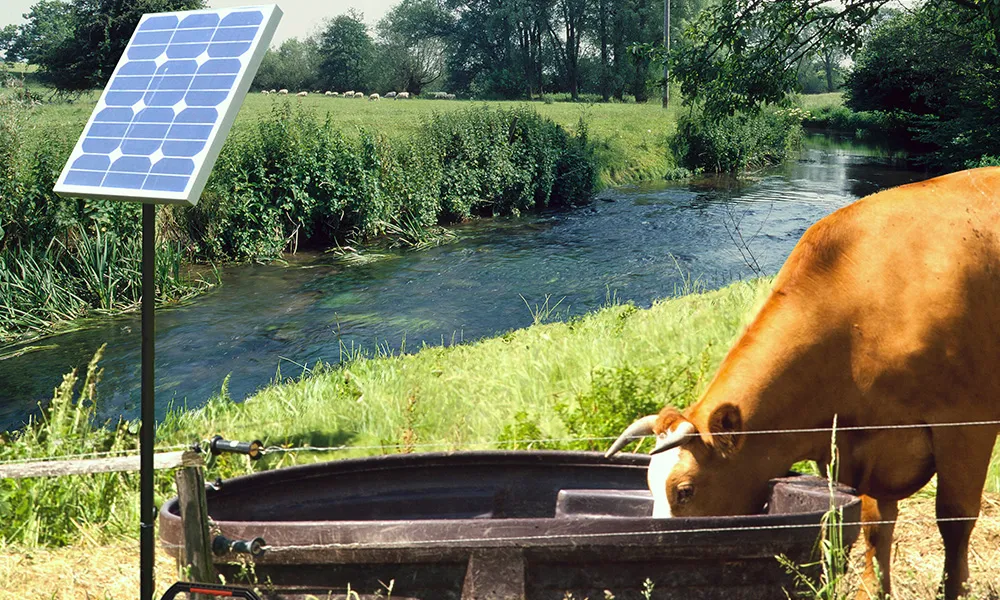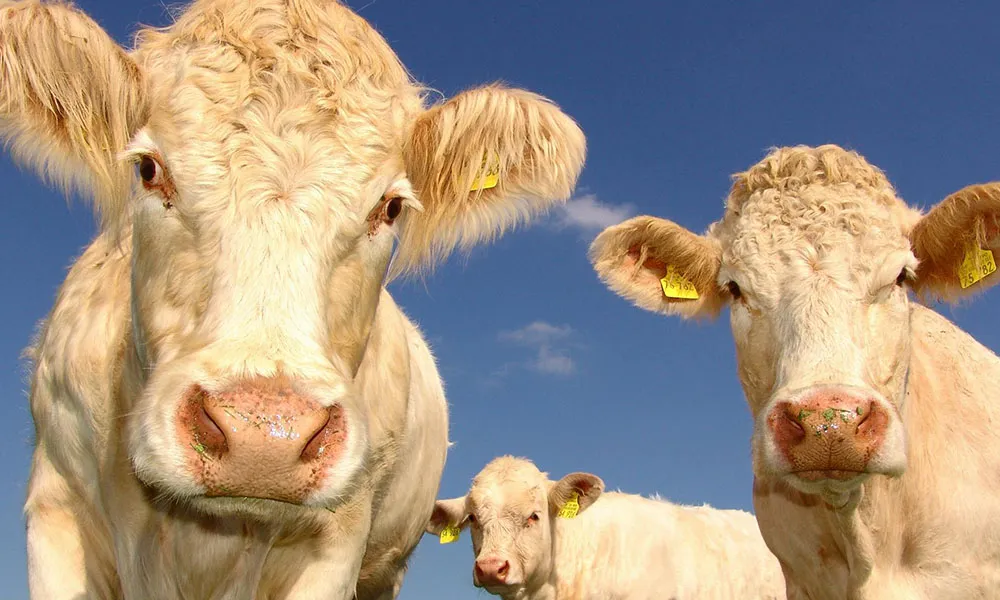
Autumn comes in wet and warm
Summer may be over, but for sheep farmers the threat of maggots has not gone away. If anything, the danger has increased in recent days. September has delivered the kind of warm, murky conditions in which the blowfly thrives. Over the last week, we have had several days when the temperature was between 20 and 25 degrees, while heavy rain showers persist. This blast of damp heat means that sheep’s wool is wet and warm, providing the ideal situation for the fly to lay its eggs. To compound the danger, it is now a couple of months since most sheep farmers finished shearing, so wool is starting to get heavy again.
An abundance of caution is required over the next few weeks to prevent and/or manage this scourge. October will probably see a dip in temperatures and a gradual reduction in insect numbers, but for now sheep farmers will need to be vigilant. Thankfully, we don’t live in an era when blowfly management is a matter of waiting nervously for a strike to hit and only then taking action. There are plenty of products on the market that will help to reduce the likelihood of maggots developing during these humid, early-autumn days. Even if you dipped or sprayed your sheep a couple of months ago, current weather conditions mean that a second treatment is probably necessary.
The Clik Range
Among the most popular products for preventing serious blowfly strike is the Clik range. Here at Agridirect.ie, we stock three products in this range, and you should consider which of these is the best fit for your purposes. The standard Clik Pour-On contains the active ingredient Dicyclanil and is effective at preventing maggots for up to 16 weeks. However, with a withdrawal period of 40 days for meat and offal, this product may not be the right choice for factory lambs. You should also note that the Clik Pour-On is not suitable for use in animals producing milk for human consumption.
Clik Extra is the most powerful product in the range and promises to prevent blowfly strike for up to 19 weeks. It contains the same active ingredient as the standard version and has the same withdrawal period of 40 days. If you are worried about a long and warm autumn and want peace of mind, then Clik Extra might be the best choice for ewes and breeding rams. An application of Clik Extra now will see your sheep covered until well into the winter. By then, the threat of maggots will be non-existent.
And finally there is Clikzin. Clikzin offers a maximum of 8 weeks’ protection against blowfly strike but has a withdrawal period of 7 days for meat and offal. This makes it ideal for kill-weight lambs that you will be selling in the coming weeks. All Clik products should be administered using an applicator gun. The 4-stroke method should always be deployed.
Ectofly, Vector and Cyper Guard
Other solid choices for preventing blowfly strike are Ectofly and Vector. These are more general-purpose insect repellents, and are used for the treatment and control of ticks, lice and flies. Like Clikzin, they have a 7-day withdrawal period, which makes them ideal for use on factory lambs. Ectofly and Vector contain the active ingredient Cypermethrin and are effective against flies for up to 8 weeks. They should be applied using a purpose-designed pour-on gun.
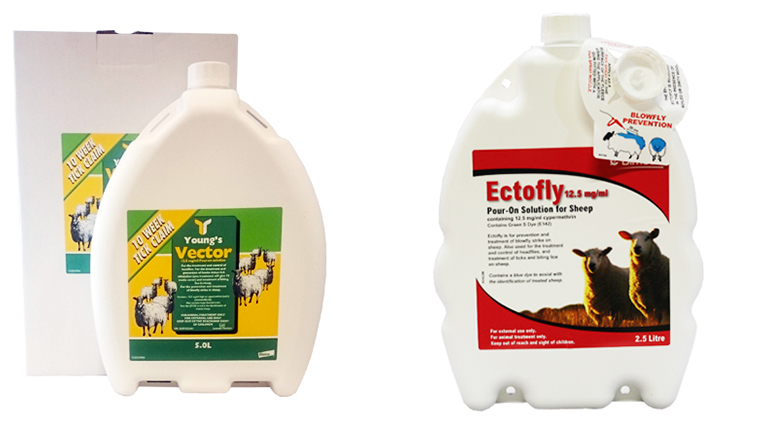
Cyper Guard is another great option for preventing or treating blowfly strike. This product is designed for plunge dipping, and it is commonly used to prevent and treat blowfly, ticks, keds and scab. It is a pale-yellow concentrate dip emulsion and contains the active ingredient cypermethrin (cis/trans 80/20) 10%w/w. When added to water, Cyper Guard readily disperses after mixing, to give a clear microemulsion suitable for dipping.
Summer Dip
Summer Dip is something of an old reliable and is very popular with farmers. This topical-use dip should be combined with a clean bath for best results. It offers lasting protection against blowfly infestation but has a 35-day withdrawal period for meat. Again, farmers should note that it cannot be used on ewes producing milk for human consumption.
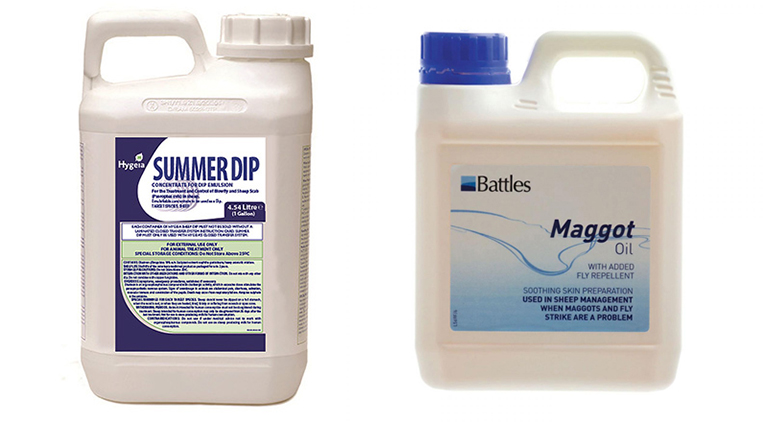
Something a bit different
If you find a sheep already struck down with maggots, Maggot Oil from Battles might be a key part of the solution. This oily solution provides a soothing skin dressing for affected areas, while also serving as a fly-repellent to prevent further infection. Maggot Oil is most effective on damaged areas, where it will help to maintain the conditions for good healing. It is proving to be a very popular choice with farmers this season.




